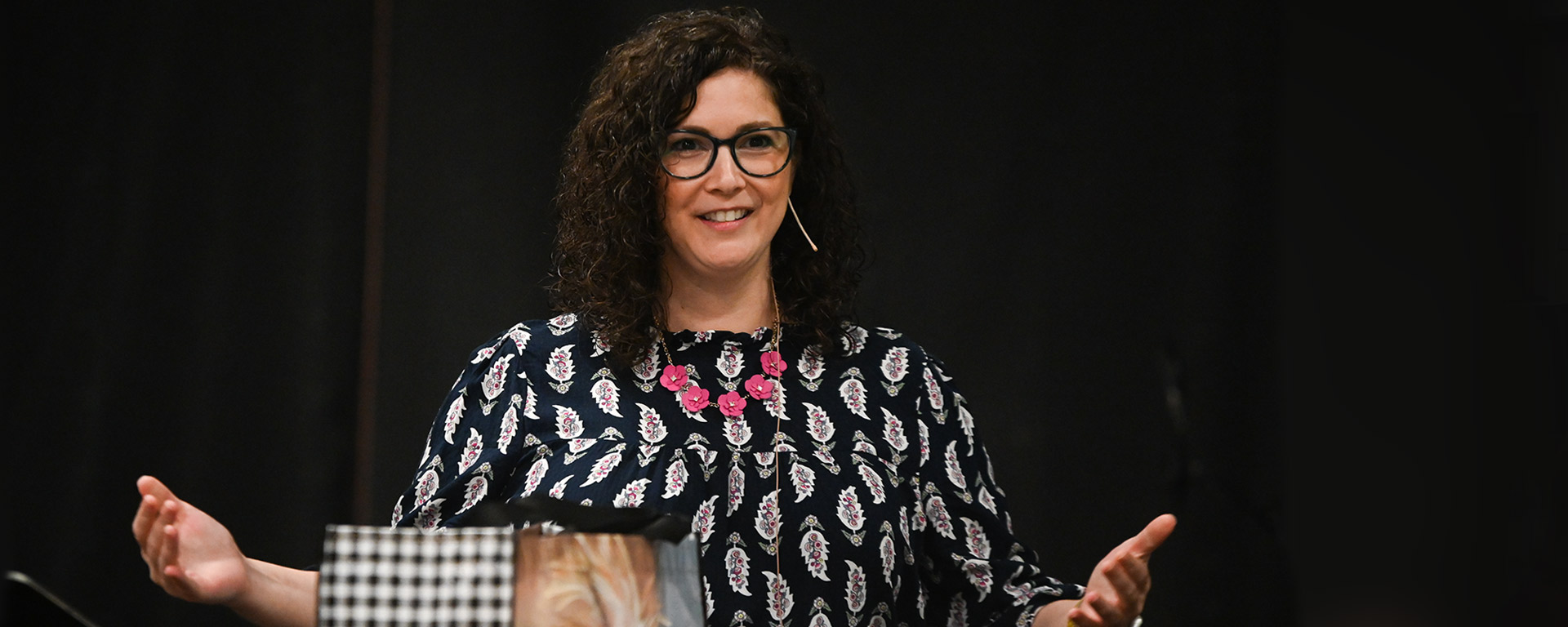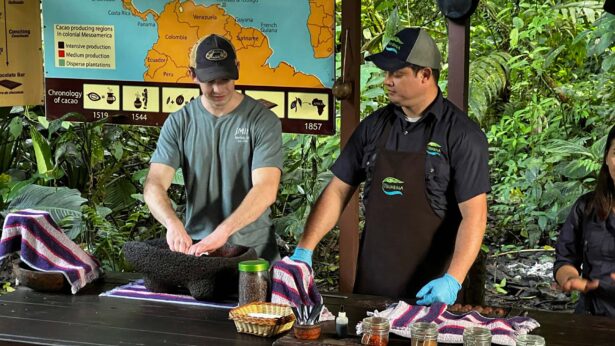Fred Rogers once said, “The music we hear early on tends to stay with us all our lives.”
As young children, many of us might recall moments when we danced to our favorite songs, played make-believe or created a work of art that was proudly displayed at home. These are more than memories and were likely multisensory experiences that helped us become who we are today. The arts invite us to make meaning of ourselves and the world around us. Through dance, music, media arts, theater and visual art, engaging in a creative process ignites our senses and offers an outlet for discovery.
When the Arts-Based Collaborative at UT Chattanooga launched an affiliate program of the Wolf Trap Institute for Early Learning Through the Arts, we knew how essential the arts are in a child’s development. When students have access to arts-based learning throughout their formative years, various studies have shown how these multisensory engagements foster lifelong learning because of the growth mindset developed by participating in creative endeavors.
For young learners entering preschool, integrating the arts into their curriculum supports school readiness that may foreshadow their future success. One indicator of students’ academic potential might stem from their ability to read at or above grade level by the third grade. If literacy remains an underpinning to a student’s overall academic success, then literacy development may benefit from multisensory experiences. A classroom of learners presents an opportunity to engage content from multiple perspectives as each student develops knowledge and skills in unique ways.
Young readers approach text in various ways, and it’s important to be mindful of this as we focus on literacy development, especially during a student’s formative years. When young learners have meaningful experiences in the visual and performing arts, they develop creative and critical thinking skills that will help them express their ideas and cultivate a sense of wonder.
This is the foundation for developing essential skills needed in today’s world, such as effective communication skills, collaborative potential, and the ability to think critically and creatively. When the arts become an ongoing component throughout students’ academic career, the time they spend actively engaging in a creative process becomes critical.
Opportunities to experience the arts are more than preparing for a career in the arts. The cognitive and social skills we develop engaging our visual, aural and kinesthetic senses through creating in an art form or experiencing it makes us all better. The strong foundation a child might develop in and through the arts can only continue to grow if we encourage ongoing creative experiences.
As students work toward graduating from high school, they may have limited access to engaging in the arts as they progress towards higher grade levels and pursue post-secondary opportunities. Considering how we can keep the arts we experienced during the early years present throughout our lives might become an opportunity to revisit how we encourage creativity in all we do.



